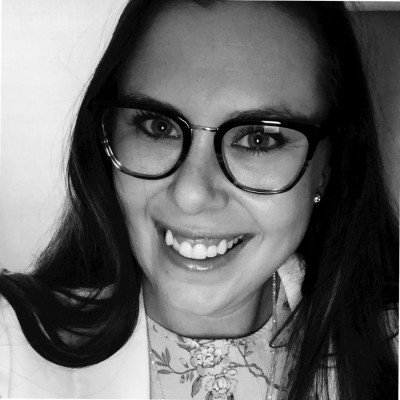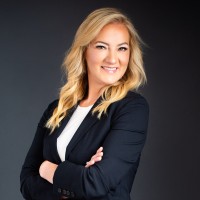Episode 117: Alyssa Clark on Empowering Women to Own Their Career Growth
2.5K Views | 15 Min Read
Shawnna Sumaoang: Hi, and welcome to the Sales Enablement PRO podcast. I am Shawnna Sumaoang. Sales enablement is a constantly evolving space and we’re here to help professionals stay up to date on the latest trends and best practices so that they can be more effective in their jobs. Today, I’m excited to have Alyssa Clark, the head of curriculum and instructional design for sales enablement from ServiceNow join us. Alyssa, I would love for you to introduce yourself, your role, and your organization to our audience.
Alyssa Clark: Thank you so much, Shawnna, and shout out to you and Olivia for putting this together. I’m just really a fan of the curriculum and curation that you guys do on the site. I’m such a fan, so happy to be here. As you mentioned, my name is Alyssa Clark. I have a fancy title, but essentially, I am responsible for the “what” and the “why”, as it pertains to the curriculum that my learners at ServiceNow consume. So, I call myself a nerd about all things place learning. I’m based in San Diego, California, and I’ve been with ServiceNow, now going on six months. So, it’s been quite a fun journey, we call it a spaceship. Joining ServiceNow is like going above and beyond anything you’ve known before. So, it’s been quite a fast and furious ride, but it’s the right place for me, absolutely.
A little bit about me, it’s my least favorite topic, but I will say that I am like many people who have joined your podcast, not actually a traditional, workplace learning person. I’m actually a paused academic. I entered into the corporate learning space back in graduate school after being awarded an opportunity to teach as the instructor of record for San Diego State University, and really fell in love with the knowledge transfer process and wanted to be more involved, I suppose, in creating those experiences for people to get immediate gratification. That probably says something about me, but we’ll get to that later. So, it really has been a 10-year romance, if you will, with corporate learning. I’ve been through healthcare engineering nonprofits, and now most recently into technology, which is truly where I feel like I belong. So, I finally feel like I’m home at ServiceNow.
SS: I love that. Now, in addition to helping sales reps develop new knowledge and skills, you and I are also both very passionate about mentoring young women who are early on in their careers. I would love to hear from you, how has mentorship played a role in your own professional development, either as a mentor or a mentee over the years?
AC: Yeah, it’s something Shawnna that I know you and I have chatted about and it’s so critically important for women to start reframing our experiences as opportunities to help bring each other up. And my battle that I’m currently fighting right now is purely around representation of people who look like me and sound like me and want to question. I want that type of person, you know, ideally regardless of gender, sexuality, any sort of prescription to be able to have that voice, if they have that organic thought, that curiosity and that consciousness that we need in human beings who work in the corporate space, we need that. I think for me as I started to mature in the corporate learning space and, you know, broadly, or like I said, around engineering healthcare, and now tech, I don’t see a lot of women as I look left, right. I want that, I want that for us to make sure that we are equally represented, and there’s so much room around race, sexuality, et cetera, to continue on to.
But I think for women it’s really important for us to see our leadership positions as an opportunity to groom someone else to take our spot. And we need to be committed as peers and allies in this battle of representation to look at each other and say, “Hey, we know what it took to get here. And it’s our responsibility to bring others forward.”
One of my recent hires, she actually was someone who, as I was talking through the process, I just kept thinking like, “wow, like I should be working for her.” Right? Like she is the one who should be making these decisions because I feel like I’m better off every time we interact. And as I reflected on my experience, a lot of those mentors for me were men and men that I still to this day admire and respect. And quite honestly, I modeled myself after, but I think about the future and I think about how much more empathy, how much more awareness can we share on certain topics in the workplace if we simply had a better representation of females, in these senior leadership positions. And that is something that I’ve made a cornerstone of my personal career is trying to make sure that I’m committed to, empowering and supporting, and hopefully motivating other women to continue their hunger and their lust for their curiosity and for responsibility and for wanting to make an impact.
But I really think that there are good examples every day of if we looked around the room and said, design thinking, who are our personas who are making incredibly formative strategic decisions at companies today, who are those personas? What do they look like? What gender are they? What sexuality are they? What race are they? What’s their backgrounds, the humanities, are they business and are we equal? Are we really benefiting from the collective knowledge that exists out here? You know, humanities, people shout out to you as well. We need more humanities people in corporate America in corporate learning because it’s really that passion for curiosity, like you keep hearing me say and that lust for learning that I think actually outshines some of the other technical skills that can be taught. I would hire someone time after time, who I feel demonstrates creative thought independence, critical thinking, passion, curiosity, over someone who’s incredibly, technically trained every day. And I think that that speaks to the need for empathy in today’s climate, more than ever before, but also as the importance of representation of all people. For me, particularly I’m focused on supporting other women at this point in my career. But what can we each do with our own personal narratives to look at ourselves and say, “Hey, what other demographic persona person can I help bring forward with me as I move forward in my career?” Whether it be personally or professionally.
SS: One hundred percent. I could not agree with you more. And I love the way that you’re thinking about this and your lens on this world. And you mentioned this, particularly in the tech industry and having kind of, come up predominantly in the tech industry, myself professionally, you know, do you have advice for how women can support each other in professional development and career growth, particularly in these industries where, as you mentioned, a lot of the times, we’re not seeing women in leadership roles or those that have gotten there have had to do so from moving quite a bit from role to role to elevate themselves, within finally the right organization. I’d love to understand what kind of advice you have for how women can support each other.
AC: Such a good question. Shawnna. I think one of my lessons that I’ve learned the hard way, our voice is a powerful thing. And using your voice, knowing when, where and how to use your voice is something that I’ve really spent time reflecting on, throughout my multiple tenures at various companies. I, myself am one of those people, Shawnna, you mentioned who’s had to move and had to make strategic moves. Although they were difficult, I’ve left companies where there was important work I was doing, difficult decisions, but had to move for the various reasons that you mentioned. And as I think about using my voice and my decision, like I said, very difficult at times. It really came to that moment of how I’m using my voice. That’s really where I would encourage people early in their careers, especially women to think about how are you using your voice? And what I mean by that specifically is your lack of speaking up is sometimes even louder than being silent. And I would really encourage women who are sitting in a meeting thinking, should I ask this question? Should I raise this complaint? Should I voice this concern? I would say if you’re thinking it and you have a reason for it, ask the question, but ask it from a place of curiosity. That is something, a secret weapon of mine that I’ve really tried to home in on over the years is coming from a place of curiosity and not allowing that to kill the cat.
Thinking about the why behind the what, and asking for it, sometimes relentlessly. That is what earns respect. That is what earns credibility and honestly, stamina. Shawnna, I’m sure you can relate to a time where you’re trying to drive for clarity on a set of requirements or a project or a deliverable or a timeline and not feeling heard. That is something that teaches resilience. And that is something that transcends gender, as I mentioned, that is something about learning how, when you ask a question that it lands with nothing but an answer and it’s an art forum. I have not yet mastered it, but I think one of the secret powers and secret weapons that I tend to leverage is from a place of curiosity, help me understand the decision-making around X. Can you tell me a little bit more around the why behind the what of this pipeline decision, you know, whatever the right use case is driving for that why? That is something that in my personal life as well, I’m constantly coaching my family members or encouraging my sisters to think about drive for that why, because at the end of the day, the why is why we get up in the morning. It’s why we chose this job. It’s why we’re all here. It’s to derive some kind of meaning. And I would really encourage women to not let that go.
The second you stop asking those questions that you become just a face on a zoom meeting or a butt in a seat, that is not you being the best version of yourself. And I would challenge a coach to say, if you are someone who feels they’ve been subdued into silence, what are you committed to as the individual to get yourself out of that? And that would be my second piece of advice to women is, no one is going to come with a magic carpet and help you get to your next career move. It doesn’t happen that way. Career progression is driven by you. Your curiosity is driven by you and your success ultimately is driven by you. And I know first handed that it is an absolute responsibility of mine. I know you’re committed to it as well, Shawnna, to invite women into these conversations. Your voice is wanted, it is heard, and your unique perspective is what makes you not only a viable asset to an organization, but to the world, to our communities as well.
SS: Absolutely. Absolutely. Now, what advice would you give to young women that are either entering or are considering entering the sales enablement industry? You know, why do you think that this is a vibrant career path for them to take?
AC: I think, of course I’m biased, but helping people do their jobs is one of the most powerful and rewarding careers that you can have. Teaching, helping shed light, increase awareness, increase understanding, ultimately that leads to belonging. And that’s where teams come together. People come together and unite brilliantly. We have some of the most brilliant people here at service now and the tech industry as a whole, some of the smartest people on the cutting-edge innovation of new products that we’re going to be using in a year that we don’t know about yet. Young women coming into this discipline, you have an opportunity to help shape the user experience of our modern-day landscape. You really do. And that’s a powerful thing. That’s a powerful thing to be in the tech industry and be able to see the next generation of how we’re going to do things, not just at work, but in life and getting a sneak peek behind the curtain to see that. And then bring your unique perspective in and help inform that and then see it go out into the world and see it be successful. That is what Frankenstein, Victor Frankenstein was hoping for with his monster. That’s what he wanted to see was that legacy. And I would empower women to say, you need to have your fingerprint on where modern society is going. We need to be involved constantly and passionately and fearlessly in those conversations to help dictate what is the tech landscape going to look like a year from now, five years from now, 10 years from now? I think women are integral to shaping what that looks like.
SS: Absolutely. Thank you so much, Alyssa, for this powerful podcast conversation I have enjoyed every minute of it.
AC: Shawnna, you are a rockstar. I am such a fan of you and of the channel and just really appreciate you leading in on some of these topics. I don’t think that they’re talked about enough and I really appreciate you inviting my perspective. So, the pleasure was all mine.
SS: Thank you so much. To our audience, thanks for listening. For more insights, tips, and expertise from sales enablement leaders, visit salesenablement.pro. If there’s something you’d like to share or a topic that you’d like to learn more about, please let us know. We’d love to hear from you.











